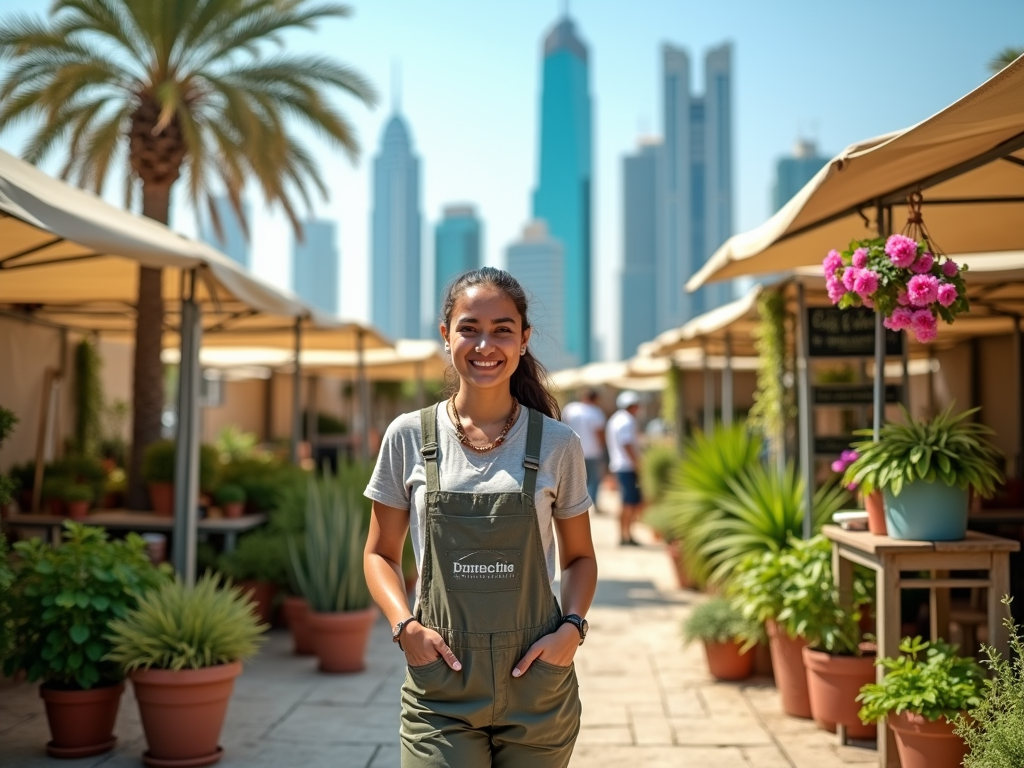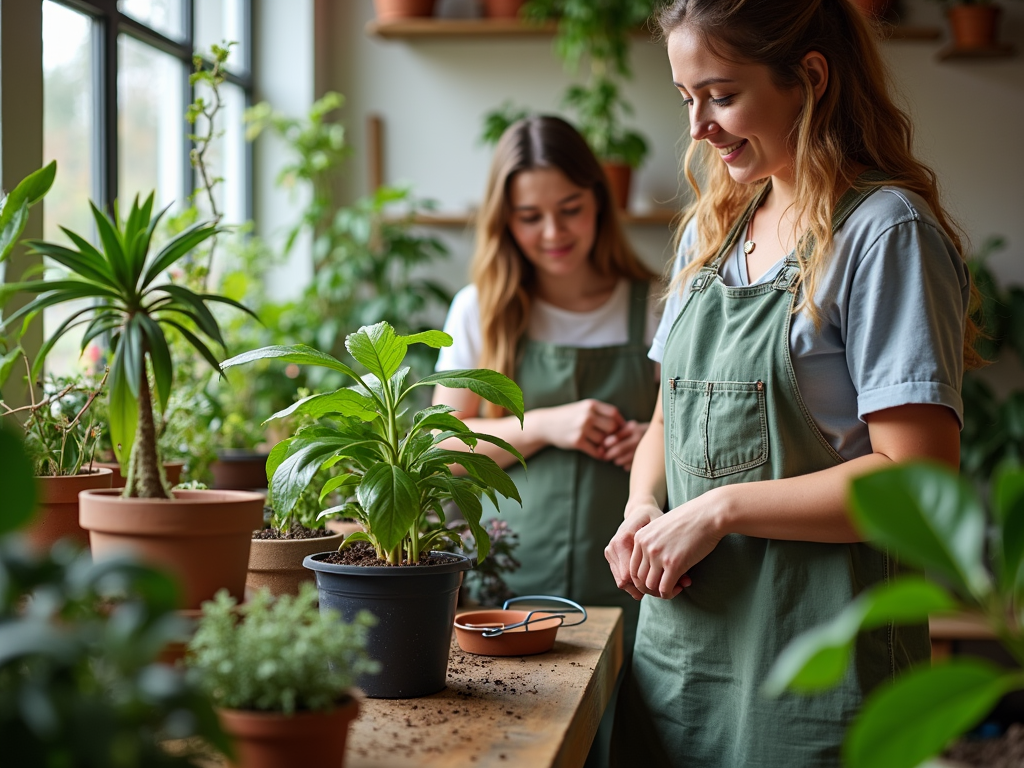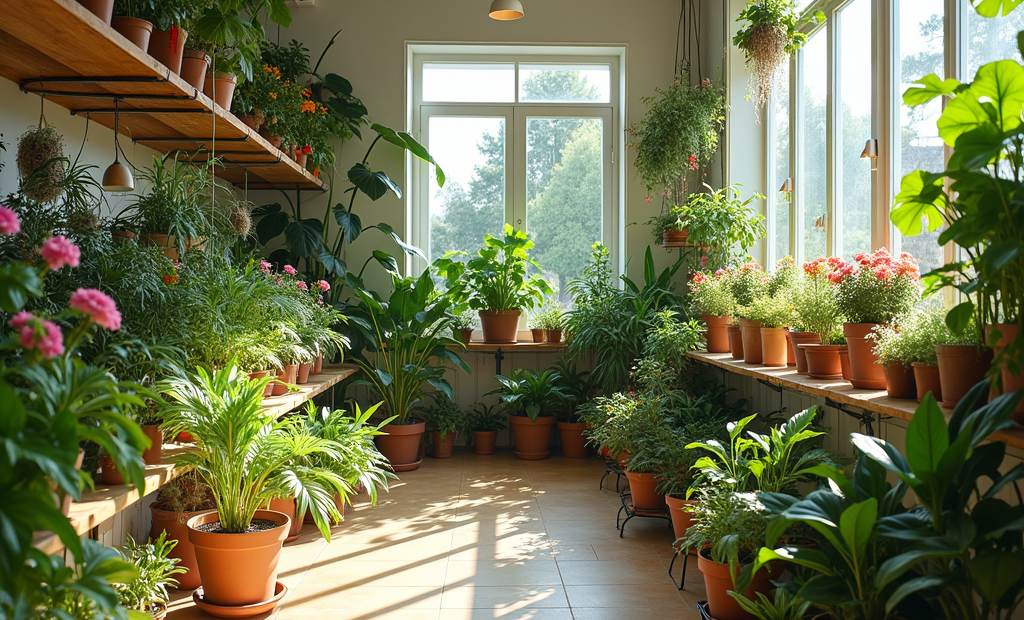How to Open a Boutique Plant Nursery in Dubai
Opening a boutique plant nursery in Dubai can be a rewarding venture, blending your passion for plants with a thriving business. As a city characterized by its love for greenery and sustainability, Dubai offers an ideal environment for such an enterprise. With the right planning and execution, you can establish a successful plant nursery that caters to a diverse clientele, from gardeners to interior designers. This article will guide you through essential steps to get started on your journey of launching a boutique plant nursery in Dubai.
Understanding the Market Demand

Before diving into the operational aspects of your nursery, understanding the market demand for plants in Dubai is crucial. The population’s increasing awareness of environmental issues has led to a surge in demand for plants, both for personal and commercial use. This market encompasses indoor plants, outdoor landscaping, and sustainable practices.
To identify your niche, consider researching the following:
- Types of plants in demand (e.g., succulents, orchids, native plants)
- Target customer base (e.g., homeowners, businesses, restaurants)
- Upcoming trends in gardening and plant care
- Potential competitors and their offerings
By understanding these parameters, you can tailor your nursery’s offerings to meet the specific needs of your local clientele, thereby positioning yourself ahead of the competition.
Creating a Business Plan

A well-structured business plan is the foundation of any successful enterprise, and a boutique plant nursery is no exception. Your business plan should outline your vision, mission, and strategies while also considering the financial aspects necessary for sustainability.
Include the following key components:
- Executive Summary: A brief overview of your business, including name, location, and objectives.
- Market Analysis: Detailed insights derived from your earlier research, focusing on customer demographics and market trends.
- Operational Plan: A description of your nursery’s layout, types of plants, suppliers, and inventory management.
- Marketing Strategy: Methods to promote your nursery, including digital marketing, social media, and local partnerships.
- Financial Projections: Budget forecasts, pricing strategy, and expected revenue streams.
By laying out a comprehensive business plan, you not only create a roadmap for your own vision but also demonstrate your serious commitment to potential investors if needed.
The location of your boutique plant nursery is paramount to its success. Dubai is a bustling metropolis, and choosing a site that captures high foot traffic while appealing to your target audience is essential. Factors to consider include:
- Accessibility for customers
- Proximity to residential areas or commercial hubs
- Space for indoor and outdoor plants
- Compliance with local zoning regulations
Consider scouting neighborhoods known for gardening activities or areas where environmentally-conscious consumers reside. Securing a lease in a prime location can significantly boost your visibility and customer engagement.
Legal Requirements and Permits
Launching a nursery in Dubai necessitates adhering to the local legal framework. Starting with obtaining the requisite permits and licenses is crucial to avoid any regulatory issues further down the line. You’ll need to register your business and may also require specific certifications related to the sale of plants, especially if importing them.
Generally, you will need the following:
- Trade license from the Department of Economic Development (DED)
- Commercial license for plant trade
- Import permits if sourcing plants from overseas
- Health certifications for certain plant species
Consulting with a local legal expert can ensure that you’ve covered all regulatory bases before proceeding with your interior design and setup.
Marketing Your Boutique Plant Nursery
Effective marketing strategies will help attract customers and build a loyal clientele for your boutique nursery. Utilize both online and offline marketing tactics to create brand awareness and promote your offerings. Some strategies to consider include:
- Social Media Engagement: Showcase your plants, share care tips, and interact with followers on platforms like Instagram and Facebook.
- Workshops and Events: Host gardening workshops or community events to establish your presence in the local market.
- Email Marketing: Build a mailing list to inform customers about new arrivals, sales, and exclusive offers.
- Collaborations: Partner with local businesses, such as cafés or home décor shops, to cross-promote each other’s services.
Implementing a diverse marketing strategy helps ensure that your nursery attracts a steady stream of clientele while establishing a brand presence in Dubai.
Conclusion
Opening a boutique plant nursery in Dubai is an exciting opportunity to combine a love for plants with business savvy. By understanding market demand, creating a solid business plan, choosing the right location, navigating legal requirements, and employing effective marketing strategies, you can establish a successful venture. As consumers increasingly seek greenery in their lives, your nursery can satisfy this demand while contributing positively to the environment.
Frequently Asked Questions
1. Do I need a specific license to open a plant nursery in Dubai?
Yes, you need to obtain a trade license from the Department of Economic Development, along with any necessary plant trade permits.
2. What types of plants sell best in Dubai?
Popular choices include succulents, ornamental plants, native species, and indoor plants that require less maintenance.
3. How can I market my boutique plant nursery effectively?
Leverage social media, host workshops, collaborate with local businesses, and engage your customers through email newsletters.
4. Are there local suppliers I can work with for plants?
Yes, there are various local nurseries and suppliers in Dubai that offer a range of plants suitable for boutique nurseries.
5. What are some trends in the plant nursery industry?
Current trends include eco-friendly practices, an increase in indoor gardening, and the popularity of exotic and rare plant species.



